FAQs About Sleep Apnea
posted: Dec. 02, 2022.
Sleep apnea, also called obstructive sleep apnea, is a serious sleep disorder that hinders individuals from achieving restful sleep. Individuals with sleep apnea regularly wake up feeling unrested. Two common symptoms of the disorder include loud snoring and periodic pauses in breathing throughout the night. Dr. Robert Youkilis, Dr. Jeffrey Beach, and Dr. Seth Bruggers, the experienced providers at Northside ENT in Carmel, IN, diagnose and treat sleep apnea.
What Causes Sleep Apnea?
Individuals with sleep apnea often stop breathing for several seconds at a time periodically throughout the night. These brief pauses in breathing result in the body getting less oxygen, which affects the ability to achieve truly restful sleep.
The interrupted breathing that is characteristic of sleep apnea is caused by a collapsed or blocked airway. The muscles in the throat relax whenever a person is sleeping. With sleep apnea, the muscle tissues can collapse across the airway and block it. The airway can also become blocked if the tongue rolls back across it. Additionally, individuals who are overweight tend to have a more narrow airway due to excess tissues around the throat, which increases the risk of developing sleep apnea.
Sleep apnea is more prevalent in men than women. Other common causes of and risk factors for sleep apnea include:
- Being middle-aged
- Being overweight or obese
- Having high blood pressure
- A family history of sleep apnea
- Excess alcohol consumption
- Smoking tobacco
- Having lung disease
What are the Symptoms of Sleep Apnea?
There are several signs that can indicate a person might have sleep apnea. Common signs and symptoms of the condition include:
- Loud snoring while sleeping
- Feeling unrested upon waking
- Pauses in breathing while sleeping
- Loud gasping following interrupted breathing
- Difficulty focusing or concentrating during the day
- Depression, anxiety, or irritability
- Headaches in the morning
- Daytime sleepiness
What Treatments are available for Sleep Apnea?
Several methods are available for treating sleep apnea at our Carmel, IN, ENT practice. Two popular treatment options include CPAP therapy and oral appliance therapy.
CPAP is short for continuous positive airway pressure. This is the most commonly used approach to treating sleep apnea as it is extremely effective. The patient wears a face mask while sleeping. A machine delivers a constant flow of air pressure to the mask throughout the night, which keeps the airway from collapsing. This also prevents pauses in breathing while sleeping and ensures the body receives sufficient oxygen.
Patients who find CPAP therapy to be a bit cumbersome might prefer oral appliance therapy. A small custom oral device is worn in the mouth while sleeping. The device helps position the jaw correctly while sleeping so the airway remains open and does not become blocked. Oral appliance therapy eliminates pauses in breathing and helps reduce snoring.
If sleep apnea is affecting you, we can help. Schedule an appointment with Dr. Youkilis, Dr. Beach, or Dr. Bruggers to learn more about treatments for sleep apnea by calling Northside ENT in Carmel, IN, at (317) 844-5656.

